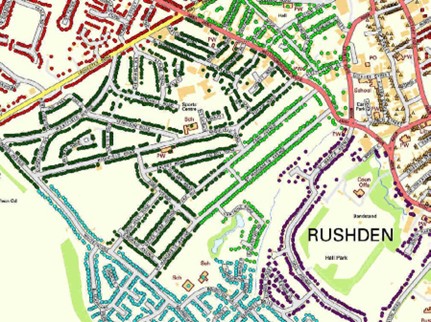Lets work together



Suite 3A, Chapel Allerton House, 114 Harrogate Road, Leeds, LS7 4NY
ukinfo@integrated-skills.com
+44 (0) 3300 888 670

The annual level of inflation has been at its highest for 10 years and The Bank of England expects inflation to peak at 11% in the Autumn. Reading some local government blogs and articles this week made me think of the ongoing role that route optimisation has in the waste management & environmental services sector in times of inflation and recession.
The Government is giving local authorities in England additional flexibility to set Council Tax by increasing the referendum limit to 3 per cent per year from April 2023 (local authorities with social care responsibilities have the ability to increase the adult social care precept by up to 2 per cent per year). Even so increasing Council Tax is not a solution that meets the long-term pressures facing public services provide by local government. According to the Local Government Association (LGA) councils are battling to find an extra £2.4 billion this year to meet unforeseen extra inflationary cost pressures (Chancellor must act to protect local services from threat of spiralling costs – LGA | Local Government Association). District councils – which provide vital services like planning and waste and recycling collection – reported an additional average cost pressure of £915,000, equivalent to 6.4 per cent of their budgeted net revenue expenditure for 2022/23. A recent Letsrecycle article notes that many local authorities plan to scale back collection services due to inflation. A recent survey also showed that 94% of respondent councils expect “significant pressure” on waste collection as a result of rising fuel costs – Spiralling inflation sees councils review waste services – letsrecycle.com
But those English councils responsible for providing waste & recycling collection services have additional cost pressures brought about by the strategic objectives contained in the Resources and Waste Strategy for England and Extended Producer Responsibility (EPR). For all authorities across England, Wales, Scotland and Northern Ireland that are responsible for gritting roads the increasing occurrence of extreme weather events, especially icing and snow, increases cost pressures.
At times like these councils providing waste & recycling collection services, street cleansing and winter maintenance often turn to route optimisation solutions to help reduce costs.
Reducing each recycling collection route for just a few miles saves gallons of fuel and over time considerable cost-savings. Optimising the route between each service location (house by house, street by street) and displaying the route via in-cab units ensures that vehicles will drive the least possible miles per route.
GIS based route optimisation software looks at the detail of collection activity considering cost elements such as the street network (one-way streets, no left turns, etc) so to minimise non-productive travel as well as the expected weight of each bin (green, residual, recycling, etc) which adds to fuel usage by having a heavy vehicle. Service time can be another cost factor so creating routes that take into account property type (detached, semi-detached, terrace, etc) as well as access issues (alley, bin store, road type) can help minimise idling time.
For winter maintenance ensuring the road network coverage is met through optimal routing is essential especially where streets need multiple passes. Further still, having an optimised route that contains information as to when and how much salt/grit to spread, for how long and how wide, ensures that the material costs are kept to a minimum. This data can be visually displayed and audible to drivers via in-cab units. It is even possible to automate the entire spreading programme on a route-by-route basis.
Day-to-day operational costs are one thing, but the biggest cost is having a vehicle in the first place so using route planning software is vital in the strategic planning process. Increasingly local councils are using route optimisation and planning software to assist them in fleet procurement decisions. The questions being poised are not only how many vehicles are needed to provide a first-class collection service but also what capacity of vehicle, should they have food pods, and should these vehicles be electric? Electrification of vehicle fleets is another aspect of public service provision that adds additional cost at a time when council spending is being squeezed.
With the onset of a high inflation era, and an imminent recession across all countries in the UK, local government environmental and waste management services are under increasing pressure to reduce costs. There is a role for route optimisation software to assist local councils to eke out every last percentage point of savings from their waste & recycling, street cleansing and winter maintenance operations.
Would you like to know more about The role of route optimisation in the waste sector in times of inflation and recession? Fill in your details below and let us know how we can help.
Website Designed & Built by we are CODA